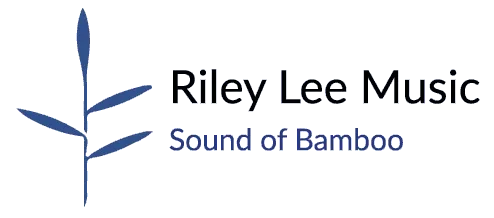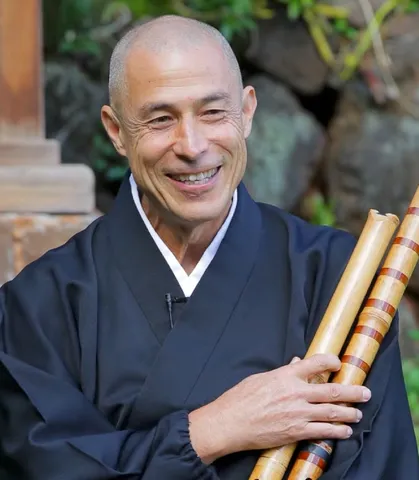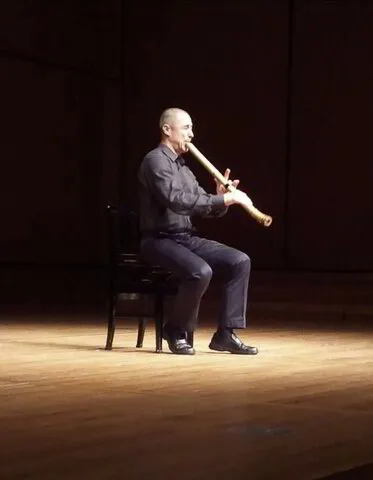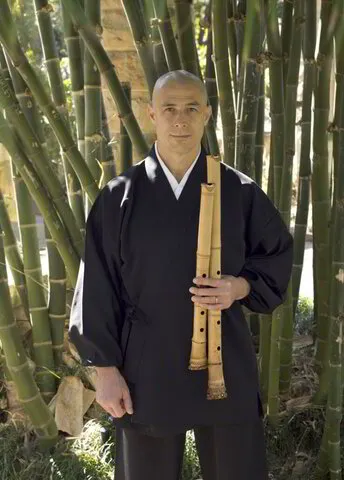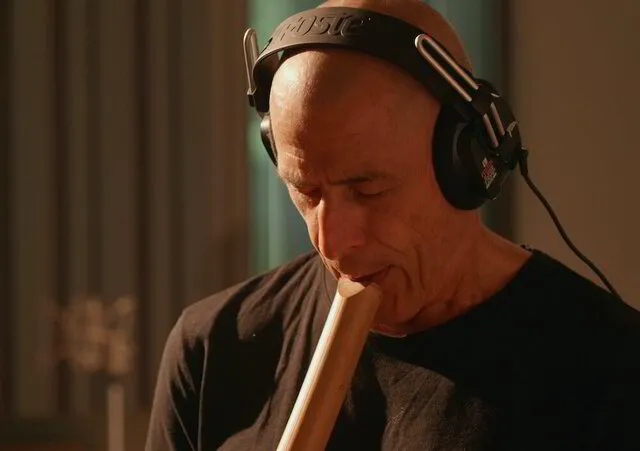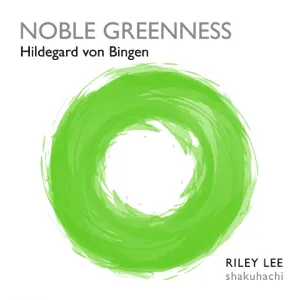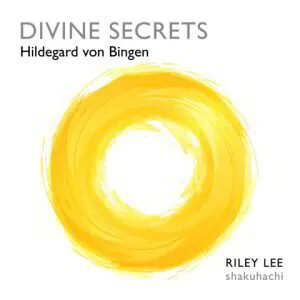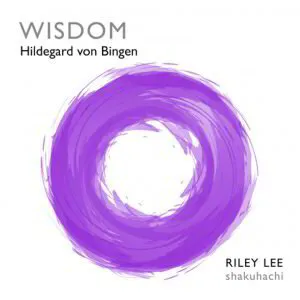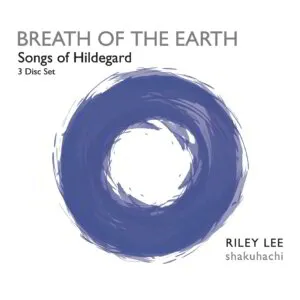Riley Lee’s Press Kit
Riley's Latest Releases
Riley Lee, grand master of the shakuhachi flute, has recorded three hours of the music of Hildegard of Bingen.
These albums are available as separate CDs. The albums are Noble Greenness, Divine Secrets, and Wisdom. The recordings have also been released as a 3CD set. This attractive three-album set is called Breath of the Earth and contains the three separate CDs.
The music is performed entirely on solo shakuhachi, the Japanese bamboo flute associated for centuries with Zen Buddhist meditation and aesthetics. Riley Lee has been playing the shakuhachi since 1971 and was the first non-Japanese to attain the rank of Grand Master (Dai Shihan) in the shakuhachi tradition.
Strange as it might at first seem, the eternal and ethereal quality of Hildegard’s spiritual music comes to life on the shakuhachi in the hands of a master.
Listen to
A track from one of Riley's latest recording, Noble Greenness, the first of three albums featuring the music of Hildegard.
Calm- the Soothing Sounds of the Shakuhachi
about Riley Lee
Though I was born in Texas, I don’t remember much of my birthplace. Our family moved to Oklahoma when I was six. The Midwest in the 1950s was a wonderful place for a young boy. We moved to Hawai’i when I was 14. Honolulu in the 196os was also a wonderful place, especially for a teenager.
I began playing shakuhachi in Japan in 1971.
My primary teacher was Katsuya Yokoyama. A very wise and generous man, Yokoyama sensei seemed to be able to maintain the perfect balance between being always ready to laugh yet always serious, extremely kind yet ever so strict. Sadly, he died in 2010.
In the early 1970s, I became the first non-Japanese professional taiko (Japanese drums) player, with Sado no Kuni Ondekoza (now Kodo). I didn’t realise that I was the first, until my friend Kenny Endo (a real taiko player) pointed it out to me a few years ago.
In 1980, I also became the first non-Japanese shakuhachi Grand Master (dai shihan). Again, I didn’t realise that this was another ‘first’ at the time. I was fortunate to be at the right place at the right time, and to have the right inclination to practice what seemed like all day every day for years.
I have a PhD (ethnomusicology) from Sydney University and an MA from University of Hawai’i. Together, these two degrees took me ten years to complete, one year more than what the dai shihan ‘degree’ took.
A few years ago, I recently created and taught a semester-long course at Princeton University on the mind, memory, meditation and mindfulness and music, based on the latest research in cognitive science. I’m fairly certain that I learned more from the experience than the students.
So far, I’ve made more than 60 recordings, of music from many genres of music. My first album, in 1980, was on vinyl, because CDs weren’t invented yet. It’s still available on the Smithsonian-Folkways label. More are in the works.
Most of my recordings aren’t featured on this site. The music you will find here has been chosen very carefully to fit the themes of this site.
At present, my wife Patricia and I live in Manly NSW Australia, another wonderful place, especially now.
Riley Lee
quotes from the Press:
4.8/5 (3000+ Reviews)
